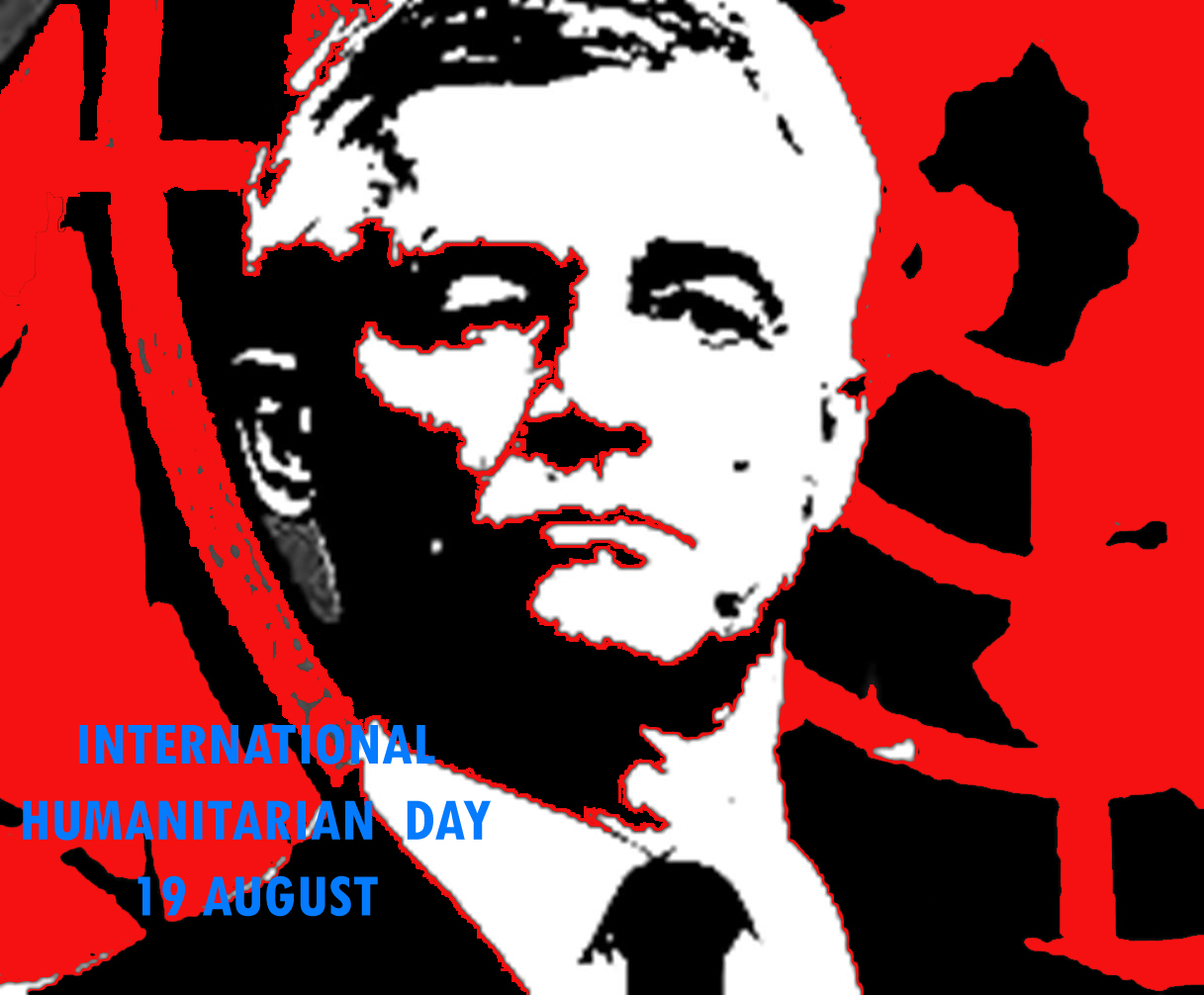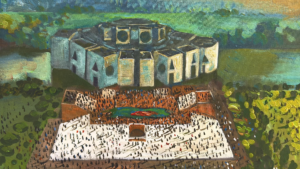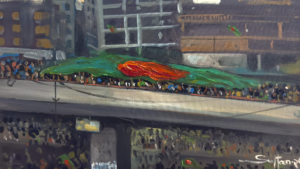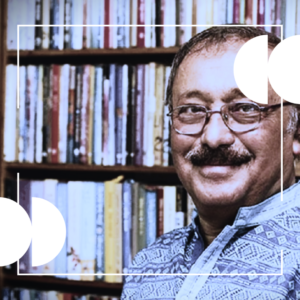
19 August 2012
Today’s International Humanitarian Day was designated in 2008 through a resolution of the United Nation as a day to give special recognition to all humanitarian and United Nations personnel who promote the humanitarian cause in general, and in particular to honour those who have lost their lives in their course of duty in this often-dangerous profession. The choice of this particular day for the commemoration is doubly significant because of the lives and the personalities that were sacrificed on 19 August 2004 in Baghdad in Iraq, at the altar of suicide bombing and religious bigotry – two modern day concepts that only serve to strengthen the case for the humanitarian imperative today.
Introduction to International Humanitarian Day cannot be complete without mentioning what happened on that day in Iraq. Through the – somewhat elementary and outright evil – act of driving a bomb-rigged truck into the main offices of the UN High Commissioner for Human Rights in Baghdad, al-Qaeda operatives killed 21 persons including Sergio Vieira de Mello, one of the most successful and renowned humanitarians and peace negotiators of our time.
The brutality of that day coupled with the act of targeting the humanitarian community was unprecedented at that time though it has become increasingly common since. The world community and the assembly of nations continue to resist these violence by commemorating this day to honour humanitarian work, and each year renews their commitment to those who need humanitarian assistance – the most marginalized, abused, and discriminated persons that tread this earth.
But we cannot forget that while we try to strengthen humanitarianism on this day, al-Qaeda operatives rejoice in their accomplishment and promise greater destruction and suffering to come worldwide. The chasm between the good and the evil, to be quixotic, has never been wider. The need for the humanitarian approach to fight conflict, violence, persecution and bigotry, has never been greater.
So what does it mean to be humanitarian? Why this dramatic term for something that just means giving aid, or food, or refuge, or simply protection? Where is the line that places ‘that which is humanitarian’ at a notch above all other imperatives? It would please me to just dwell on this today.
A matter that has ‘humanitarian implications’ means that it supersedes (and can ignore) concerns of economics, politics, geo-strategic policy or security – it has to be assessed at the purely fundamental scale of human need, and the necessity to protect life and human dignity. Humanitarianism is an ethic of kindness, benevolence and sympathy that we must extend universally and impartially, for the reason that they are human beings.
There is no scope for distinction in humanitarianism – it is blind to race, colour, gender, age, tribe, caste sexual orientation, religion and nationality. It is an idea that is like a final safeguard when all else has failed to protect an individual or a community against a threat. In this case, ‘all else’ signifies everyday measures such as rule of law, and other national protection mechanisms. We are perhaps most familiar with our Constitution being the ultimate protector of rights. In this country, we are guaranteed fundamental protection by the Constitution and the laws that flow from it, and the need for humanitarian intervention arises only when those measures are unavailable or insufficient to save our lives.
Of course, such a heavy concept is not to be invoked lightly. Because of its gravity, a humanitarian condition cannot be declared capriciously, and is to be assessed by a professional agency or a legal entity like a State. A situation doesn’t become humanitarian simply because the news may paint it as such. With most existential threats to safety in any community – insecurity, crime and natural disasters – the rule of law and the security apparatus are designed to protect against them; there is of course, no need for humanitarian intervention. Only when the threats systematically escalate beyond these protection mechanisms, can we appeal to the humanitarian imperative.
We are all aware of some of the many humanitarian situations that are around us – conflict in Sudan, political turmoil in Syria, earthquake in Haiti and displacement in Somalia to name a few – but I am uncertain whether we consciously realize that the humanitarian assistance that is being provided in these cases is because their normal framework for protection and assistance has collapsed. These individuals have no government or family to rely on, and are offered humanitarian assistance as a last resort. We must be conscious in recognizing the seriousness of a humanitarian cause and likewise, the immediacy of the need because in most cases lives are at risk.
The humanitarian cause is endangered. It is as endangered in Bangladesh as it is elsewhere in the world. Sometimes it is trapped under economics, at times under geo-politics, and most sadly, at other times under ignorance or competition. The elemental reality of a threat to life is often disregarded for economic, geo-political and other concerns that have stronger interlocutors than the persons who are at risk, and thus the wretched are left to suffer while the powerful contend their fate.
Taking stock of Bangladesh’s humanitarian standing, I find that it figures quite strongly in the recipient category as we’ve had mass inflow of humanitarian assistance (and even refuge) during and after the Liberation War, during the floods of the 80s and 90s, and during subsequent cyclones in the past ten years. However in the giver category, we have not done as well. A strong case in point is the current situation of the Rohingyas. According to all the criteria expounded above, the situation of the Rohingyas is one where their state protection mechanism has failed (or is being wilfully denied), legal and political reality is averse to their nationality status, and the economic reality is such that they are better off with meagre earnings on Bangladesh’s shores than they are in their ancestral lands.
Being legally ‘stateless’ is one of the greatest humanitarian disasters to beset an individual, and thus the case of the Rohingya is notorious in the humanitarian community. That means that every protection of the law can be denied to them, and they have no recourse but their own abilities. And that is why, when attacked in Rakhine recently, they felt safer to flee than watch a gruesome end unfold.
Political and legal negotiations for the status of the Rohingyas will take place at the world stage, and Myanmar will have to take responsibility certainly. But the imperative to provide ‘refuge’, a primary tool of humanitarian assistance, is dying on Bangladesh’s doorstep in the interim. Our calibration in humanitarianism is off by a wide margin. Leading journalists and writers are confusing our responsibility of refuge with Myanmar’s responsibility of citizenship rights. The world is not attacking us when it asks us to provide Rohingyas refuge – it is simply reminding us of a universal obligation of providing immediate and impartial humanitarian assistance.
It is quite shocking that while ‘refuge’ is a temporary measure that we can easily provide as a poor nation ourselves; we are being consumed by dubious concerns of our own self-preservation in the face of what is merely imagined to be an unbarred flood of refugees. We have rejected the timeless norm of refuge and now engage in what can easily be charged under customary law as ‘refoulement’.
Sergio de Mello and many others gave their lives for the humanitarian cause. He had even served in Bangladesh with UNHCR in 1971. His life and his death have yet to be given true meaning in Bangladesh, but we can do that by recognizing the humanitarian need of the Rohingyas while their State is advocated to return to them their nationality.





